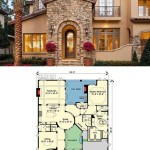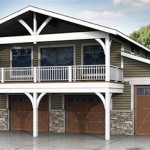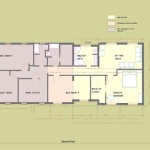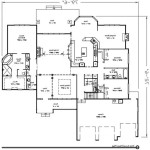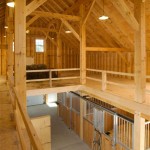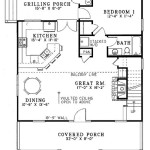House Plans With Basement Suite: A Comprehensive Guide
The integration of a basement suite into a house plan presents a multifaceted opportunity for homeowners. Beyond simply adding square footage, a basement suite can serve as a source of rental income, provide independent living space for family members, or offer a future-proofed solution for aging in place. Careful planning and adherence to building codes are paramount when considering this type of addition.
This article will explore essential considerations when evaluating house plans with basement suites, covering topics such as design options, code compliance, legal implications, and impact on property value.
Key Considerations Before Selecting a Basement Suite House Plan
Before investing in a house plan with a basement suite, a thorough assessment of several critical factors is necessary. These factors relate to the homeowner’s needs, the property itself, and local regulations.
Firstly, the intended purpose of the basement suite must be clearly defined. Will it be a rental unit, a space for family members, or a potential future living area? The answer will significantly influence the design choices, including the size, layout, and features included within the suite. For instance, if the suite is intended as a rental unit, a separate entrance, dedicated utilities, and soundproofing become crucial considerations.
Secondly, the existing property and its zoning must be thoroughly examined. Zoning regulations dictate whether accessory dwelling units (ADUs), which include basement suites, are permitted on the property. These regulations may stipulate minimum lot sizes, parking requirements, and setbacks. Furthermore, the actual topography of the lot and the condition of the existing basement will influence the feasibility and cost of creating a functional and legally compliant suite. A sloped lot, for example, might facilitate a walk-out basement with a separate entrance more easily than a perfectly level lot.
Thirdly, budgetary constraints must be realistically established. The cost of finishing a basement and transforming it into a self-contained suite can vary significantly depending on the scope of the project, the materials used, and the complexity of the design. Obtaining detailed cost estimates from multiple contractors is crucial to avoid unexpected financial burdens. Moreover, it is vital to factor in permit fees, inspection costs, and potential increases in property taxes due to the addition of the suite.
Essential Design Elements for Functional Basement Suites
Designing a successful basement suite requires more than simply dividing the basement space into separate rooms. Thoughtful planning is essential to create a comfortable, functional, and legally compliant living space.
A crucial aspect of basement suite design is ensuring adequate natural light and ventilation. Basements, by their nature, often lack natural light, which can make them feel cramped and uninviting. Incorporating egress windows that meet code requirements for emergency escape is essential for safety and can also significantly improve the living environment. Light wells can be used to maximize the amount of natural light entering the basement. Furthermore, a well-designed ventilation system is crucial for maintaining air quality and preventing moisture problems.
Another vital element is soundproofing. Noise transfer between the main house and the basement suite can be a significant source of conflict, particularly if the suite is used as a rental unit. Soundproofing measures, such as installing insulation with a high sound transmission class (STC) rating in the ceiling and walls, using resilient channels to decouple the drywall from the framing, and installing solid-core doors, can significantly reduce noise transmission. Proper planning of plumbing and HVAC systems is also important to minimize noise.
Finally, accessibility is an important consideration, particularly if the suite is intended for elderly family members or individuals with mobility limitations. Features such as wider doorways, roll-in showers, and grab bars can enhance accessibility and make the suite more comfortable and usable for a wider range of residents. While full ADA compliance may not be required for a typical basement suite, incorporating universal design principles can significantly improve the functionality and appeal of the space.
Navigating Building Codes and Legal Requirements
Building codes and legal requirements surrounding basement suites can be complex and vary significantly depending on the municipality. Adhering to these regulations is critical to ensure the safety of the occupants and avoid legal issues in the future.
One of the most fundamental requirements is ensuring adequate egress. Building codes typically require that each bedroom in a basement suite have at least one egress window or door that meets specific size and accessibility requirements. These requirements are designed to provide occupants with a safe escape route in the event of a fire or other emergency. The dimensions of the window well, if applicable, are also regulated to ensure that firefighters can easily access the window from the outside.
Fire safety is another critical area governed by building codes. Smoke detectors and carbon monoxide detectors are mandatory and must be installed in specific locations within the suite. Fire-rated drywall is typically required for the ceiling and walls separating the suite from the main house to provide a fire-resistant barrier. A separate fire-rated entrance door is often required as well.
Compliance with plumbing and electrical codes is also essential. A licensed plumber must install and inspect all plumbing fixtures, ensuring proper drainage and preventing backflow. A licensed electrician must handle all electrical wiring, ensuring that the suite has adequate electrical capacity and that all wiring is up to code. Separate electrical panels for the suite and the main house are often required to allow for independent metering and to prevent overloading the electrical system.
Beyond building codes, it is also crucial to research local zoning regulations regarding accessory dwelling units (ADUs). These regulations may dictate minimum lot sizes, parking requirements, and restrictions on the number of occupants allowed in the suite. Failure to comply with zoning regulations can result in fines and legal action.
Furthermore, if the basement suite is intended to be rented out, it is essential to comply with all relevant landlord-tenant laws. These laws govern issues such as lease agreements, security deposits, eviction procedures, and tenant rights. Consulting with a lawyer specializing in landlord-tenant law is highly recommended to ensure compliance and avoid potential legal disputes.
Impact on Property Value and Resale Potential
Adding a basement suite can significantly impact the value and resale potential of a property, but the degree to which it does so depends on various factors, including the quality of the suite, the local real estate market, and the preferences of potential buyers.
A well-designed and legally compliant basement suite can substantially increase the property's appraised value. Appraisers typically consider the rental income potential of the suite when determining the property's market value. A suite that generates consistent rental income can make the property more attractive to investors and increase its overall worth.
However, the quality of the suite is paramount. A poorly designed or finished basement suite can actually decrease the property's value. Factors such as low ceilings, inadequate natural light, and poor soundproofing can deter potential buyers. It is crucial to invest in high-quality materials and workmanship to ensure that the suite is appealing and functional.
The local real estate market also plays a significant role. In areas where there is high demand for rental housing, a basement suite can be a major selling point. Conversely, in areas with a less robust rental market, the impact on property value may be less pronounced.
Finally, the preferences of potential buyers must be considered. Some buyers may view a basement suite as a valuable asset that can generate income or provide space for family members. Others may be concerned about the potential for noise and privacy issues. It is important to market the property effectively, highlighting the benefits of the basement suite while addressing any potential concerns. Disclosing all relevant information about the suite, including its legal status and any existing rental agreements, is crucial for building trust with potential buyers.
In conclusion, house plans with basement suites offer a range of opportunities and challenges. Careful planning, adherence to building codes, and a realistic assessment of the costs and benefits are essential for a successful project.

House Plans Floor W In Law Suite And Basement Apartement

Legal Basement Suite Options Now Available Blog Vesta Properties

House Plans Floor W In Law Suite And Basement Apartement

House Plans Floor W In Law Suite And Basement Apartement

House With Basement Apt Separate Entrance Plans Google Search Bungalow Floor

House Plans Floor W In Law Suite And Basement Apartement

House Plans With Basement Apartment Bedroom Floor

In Law Suite House Plan 4 Bedrms 2 Baths 2056 Sq Ft 126 1048

Versatile Spacious House Plans With Basements Houseplans Blog Com

Small Basement Apartment House Plans And Inlaw Suite

